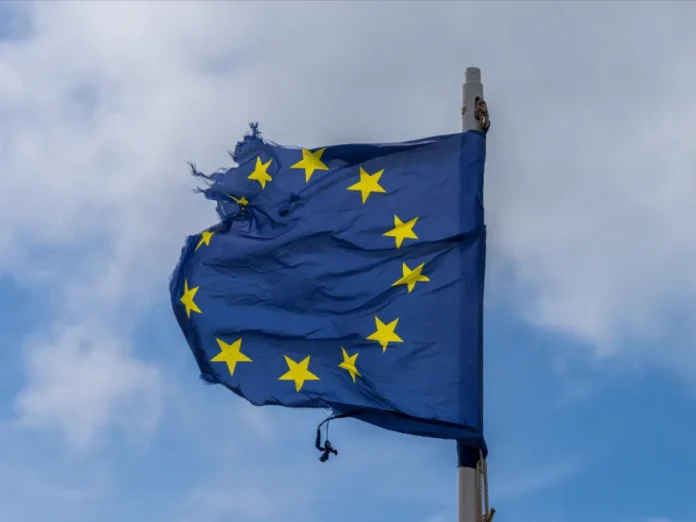Daniel McCarthy
Donald Tusk, the prime minister of Poland, might not shock Europe’s leaders the way Donald Trump does, but he too has a tough message for them.
“Hear for yourself how it sounds,” he said last month:
“500 million Europeans begging 300 million Americans to defend them from 140 million Russians. If you can count, count on yourself. Not in isolation, but with full awareness of your potential. Today, in Europe, we do not lack economic strength, people, but the belief that we are a global power.”
Decline is a choice — and for 30 years now, decline is what Europe’s political class has chosen.
Yet all the while, Western Europe slept.
Islamist terrorism did little to awaken the continent’s slumbering leaders, who continued to treat citizens calling for immigration restriction as the real enemy.
Europe didn’t choose decline just because voters would rather spend money on welfare states than providing for defense.
In two world wars and the protracted struggle of the Cold War, Europe’s democratic governments earned the popular support they needed to carry on their fight or prepare to meet future aggression.
What changed after the fall of the Berlin Wall wasn’t the people of Europe but the quality of its leaders.
From London to Brussels to Berlin, from Madrid to Paris to Stockholm, the continent’s elites adopted a philosophy that the American political theorist James Burnham described as “the ideology of Western suicide.”
They embraced a progressive liberalism that demonized all the traditional sources of a nation’s strength — its historic religion, patriotic pride and industrial base.
Green parties and environmentalists emphasized fighting climate change over readiness to fight wars.
Patriotism was treated as synonymous with xenophobia and the worst kinds of nationalism — with which Europe certainly had plenty of experience.
Secularism, meanwhile, taught Europe’s leaders to think like materialists: they might talk about “values,” but the value of a pipeline deal with Russia was the kind of thing German leaders, in particular, really cared about.
Indeed, energy policy is telling: Germany and others, with the notable exception of France, have abandoned clean and efficient nuclear power, which environmentalists detest.
Less nuclear power means more energy must come from other sources — such as Russian natural gas.
Liberal environmentalists prefer renewable energy from solar panels or windmills to fossil fuels of any kind, but the unreliability and expense of those renewables means Europeans who invest in them often end up having to turn back to fossil fuels in a cold winter, and the Russians, with no qualms about “dirty” energy and plenty of fossil fuels to sell, fill the gap.
All this results in a weaker Europe with less energy available for industry — including defense industries — and dependent on fuel from a hostile neighbor.
European elites up to now have not only been cheapskates when it comes to military spending, but they found the very existence of their countries’ armed forces distasteful.
When Ursula von der Leyen was Germany’s defense minister 10 years ago, German soldiers were reduced to using broomsticks as substitutes for heavy machine guns in NATO exercises — they just didn’t have enough real equipment.
Germany is not a poor country; its armed forces were forced to play pretend with broomsticks because leaders didn’t care enough to keep them armed and ready for real action.
Today, von der Leyen is president of the European Commission and calls for Europe to rearm.
Her words, however, are belied by her record, the British historian David Starkey has pointed out.
Europe took a 30-year vacation from history; now it is scrambling to make up for lost time, yet its nations are led by many of the same characters responsible for the continent’s weakness in the first place.
And when voters demand change, as Germans did by giving the hard-right Alternative fur Deutschland a record 20% in last month’s election, establishment parties on the left and center-right form coalition governments that exclude these unwelcome agents of change.
Donald Tusk is correct: Europe’s weakness is wholly self-inflicted.
Now the question is whether the leaders responsible for three decades of decline can reverse course completely — or whether Europe needs its own Donald Trump-like figures to replace them.
The views and opinions expressed in this article are those of the author and do not necessarily reflect the official policy or position of Censational Market.

